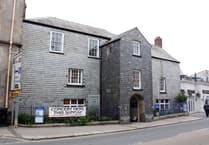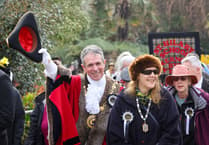Thursday, February 22, 1923
St Just Methodist Church was crowded out with churchgoers celebrating the installation of its new organ – and thanking the generous donor, Mrs Flavell of Penzance.
Apart from the new organ, there had been alterations, designed and executed by local builders the Gibson brothers.
Not all those in the chapel that evening were Methodists: the improvements had been very much a community effort, and the ‘vast’ congregation, of all denominations, offered ample proof of this. But the main tribute was reserved for the men of the church, who had been ‘energetic and self-sacrificing’ – and to the women, who had held sewing meetings, and got on with the cleaning.
Saturday, February 24, 1923
A man was sentenced to six months’ hard labour for stealing a bicycle from the top of Arcade Steps, Penzance the previous evening. But before the owner had even noticed it was missing, the thief had pedalled up to Heamoor police house and given himself up.
The thief had 13 previous convictions. He admitted to the magistrates that he was hoping for a jail sentence: imprisonment, although perhaps not the hard labour element, offered escape from a wearisome winter roaming the countryside with ‘no fixed abode’, looking for work.
Monday, February 26, 1923
A hypnotist, visiting Penzance’s Pavilion Theatre as part of a variety show, astounded the audience by putting a Camborne man into a trance for the rest of the week.
Charles Morritt, who had performed all over the world and even put on a special show for King Edward VII, was accompanied by Beulah, said to be ‘the world’s greatest clairvoyant and psychologist’.
The Camborne man was placed in a chair and – after three minutes of hypnotic influence – fell onto the floor. A member of the audience was asked to come up onto the stage, and confirmed that the subject was ‘absolutely cold’.
The audience heard that he would be revived on stage the following Saturday, March 3.
Where he would be housed and tended in the meantime seems to have remained a trade secret.
Tuesday, February 27, 1923
A boy from Coinagehall Street had a narrow escape after he fell into the floating dock – and was pulled out of the muddy water by his hair.
The boy, who was unable to swim, had been blown into the water while playing on the south arm of the dock in a high wind.
Luckily, the harbour master spotted him in the water, under the bow of a ship unloading potatoes. He alerted Mr Kitchen, one of the Trinity House pilots, who was working nearby.
Rescue was difficult because of the low tide – anyone who jumped in would risk being stuck fast in the mud.
Luckily, Mr Kitchen was able to slide down a rope into the water, fish the child out just as was sinking for the third time, and pass him to safety.





Comments
This article has no comments yet. Be the first to leave a comment.